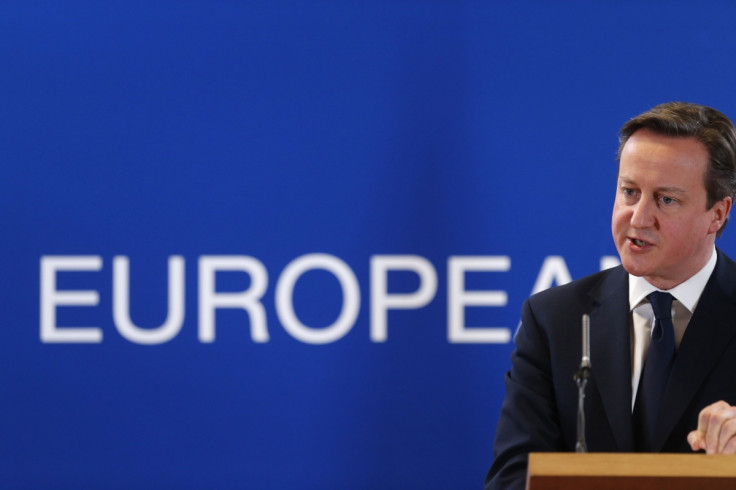Cameron's Failure over Juncker Could Push UK Further Towards Brexit By Mistake

David Cameron will emerge from the Brussels summit this weekend defeated over his bid to block the appointment of Jean-Claude Juncker as Commission president and amid growing fears his tactics have pushed the UK irrevocably towards so-called Brexit -- Britain's exit from the EU.
The nightmare scenario being considered in Westminster is that, because of Cameron's stubborn and vocal refusal to negotiate over Juncker, other leaders are in no mood to offer any concessions in his planned renegotiations of the UK's relationship with the EU ahead of an in-out referendum in 2017.
That would force the prime minister to either attempt to dress up any changes likely to be agreed by all the other states anyway as some sort of personal victory, and then go on to head the "in" campaign as he has always intended.
Or he might be backed into a corner by other leaders and his own Eurosceptic MPs into admitting he had failed to get significant changes and would therefore have no option other than to lead the "no" campaign.
At this rate David Cameron risks becoming the prime minister who led the UK out of the EU, by mistake.
The first would be a huge climb down and a pretty transparent ploy which would be unlikely to convince his opponents or even the voters and would, as a result, increase the chances of a "no" vote.
The second would be the real nightmare for Cameron. He might have to consider resignation as the only way of averting the thing he wants to avoid at all cost, leading the UK out of the EU.
One senior MP told IBTimes UK: "This is a real prospect. It is the consequences of Cameron's short-sightedness. I have no idea what he thought he could achieve by adopting such a short-term approach to Juncker other than a quick poll boost and to win back a few Ukip defectors, but it has backfired badly.
"At this rate David Cameron risks becoming the prime minister who led the UK out of the EU by mistake," he said.
It is clear from the prime minister's recent statements that he believes his tactics will have won him support amongst both his own Eurosceptic MPs and the wider electorate for standing up to the EU leaders and proving he has the mettle to press for real reforms in his pre-referendum negotiations.
And he will undoubtedly make a Commons statement next week insisting he had "done the right thing" and proved he was no roll over, even though he failed, and it is the approach he will adopts in the re-negotiations.
But it appears possible that he has so infuriated other leaders, with even Germany's Angela Merkel telling him he is isolated, that they are not prepared to offer him even fig-leaf concessions in those negotiations, irrespective of what that might mean for the referendum.
No one has said it in public yet, but there are even those in the EU who are said to believe it is time to call Cameron's bluff and are prepared to live with the consequences of a Union without the UK which, in any case, is not a part of the euro or the Schengen agreement on open borders.
Cameron's remaining hopes now seems to be pinned on a belief that, with the rise of Euroscepticism in the recent EU elections, other leaders will understand the need for fundamental reform and will embark on a programme that will meet many of his demands.
That must be a possibility, but it will be despite, not because of, the prime minister's tactics over Jean-Claude Juncker.
© Copyright IBTimes 2025. All rights reserved.





















